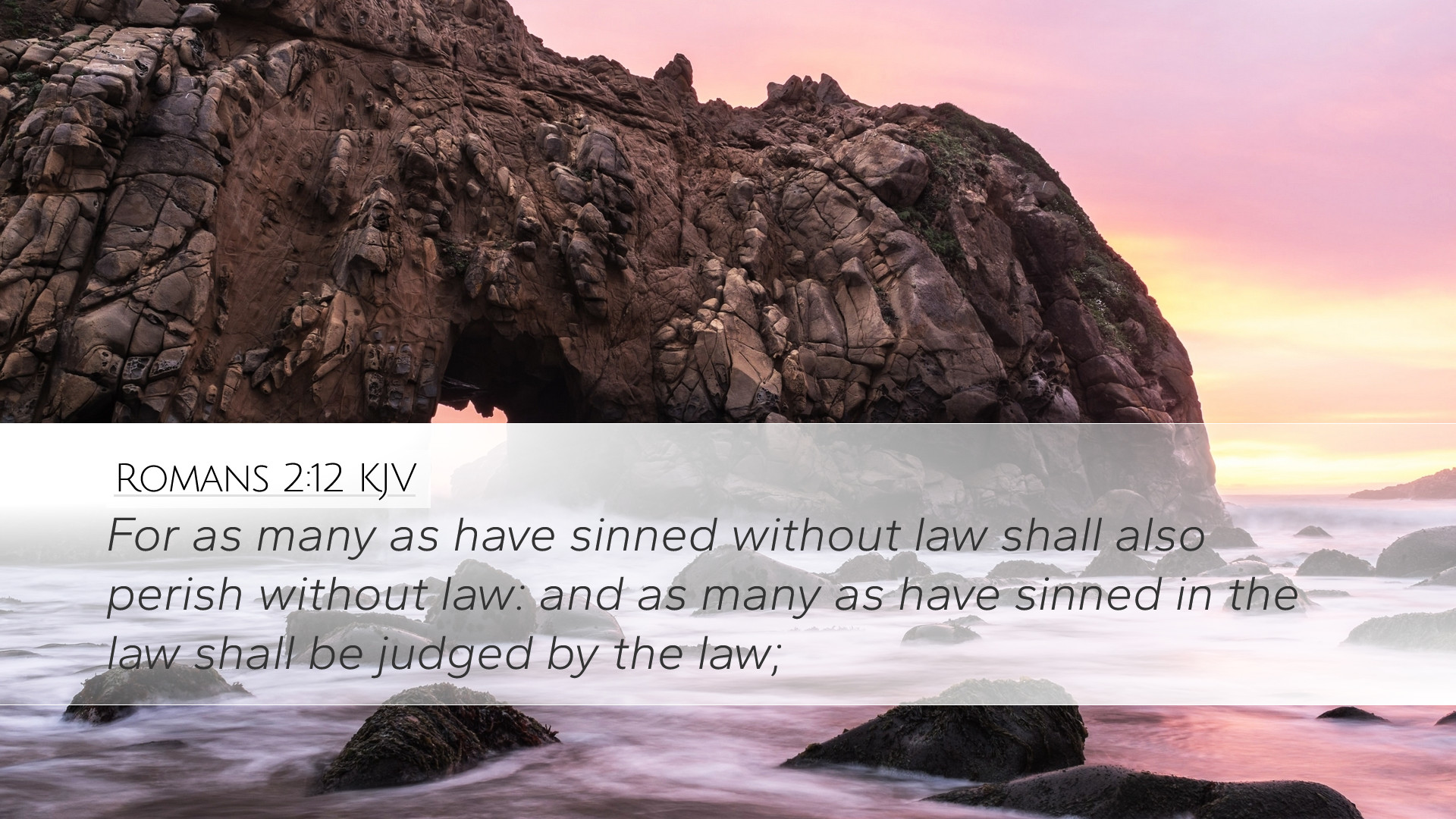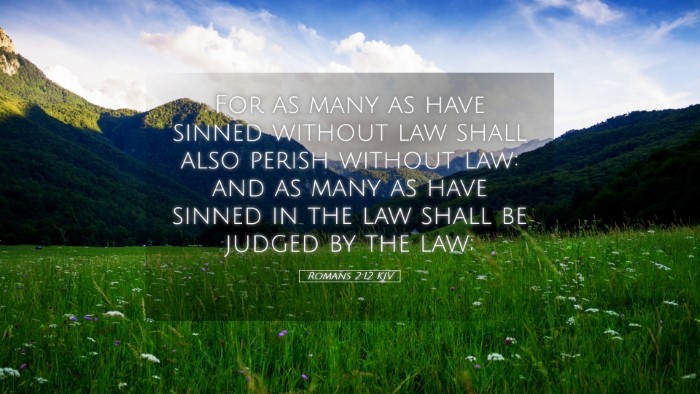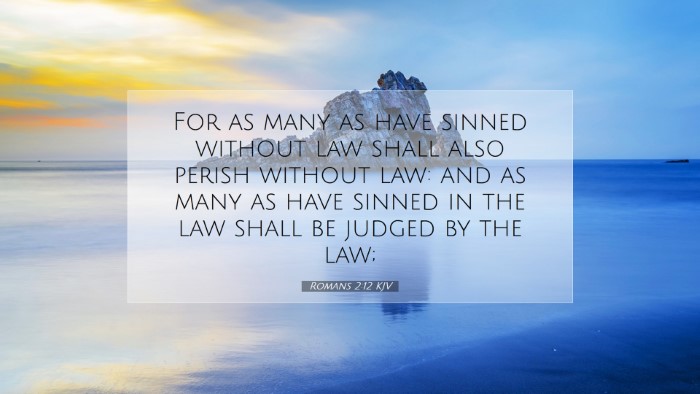Commentary on Romans 2:12
Romans 2:12 states: "For all who have sinned without the law will also perish without the law, and all who have sinned under the law will be judged by the law." This verse is rich in theological significance, addressing the relationship between sin, the law, and divine judgment.
Exegesis of the Verse
This verse forms part of the Apostle Paul's argument in Romans, aimed at both Jews and Gentiles. It presents a clear dichotomy: the sinner's standing in relation to God's law, irrespective of whether they had direct access to it.
Understanding "Sinned Without the Law"
Matthew Henry elucidates this phrase by clarifying that those who sin without the Mosaic Law are not exempt from God's judgment simply due to ignorance of the law. Rather, they are still accountable for their actions and the innate moral law that is written on their hearts.
"Sinned Under the Law"
Albert Barnes points out that those who are under the law, namely the Jews, face a stricter judgment because they have been given the divine commandments directly. Their awareness and rejection of God's law render them more culpable for their sin.
The Nature of Judgment
Paul emphasizes the universal nature of sin and the resultant judgment. Adam Clarke remarks that divine judgment is impartial; both Jew and Gentile will be judged according to their knowledge and the use of it. This reinforces the concept that God recognizes the different contexts in which humans operate.
The Moral Law and Conscience
In his writings, Clarke suggests that God's law is not merely a set of rules but a moral compass innate to every human being. Even those who have not received the written law are held accountable for their actions as their conscience will bear witness to the moral standards set by God.
The Implications for Salvation
Understanding this verse is crucial for grasping the broader narrative of salvation in Paul's epistle. The universality of sin suggests that everyone—regardless of their relationship to the law—needs salvation through Christ.
Paul's Argument of Justification
Henry asserts that the heart of Paul's message is that no one can attain righteousness by the works of the law; it can only be through faith in Christ. This realization pushes both Jews and Gentiles towards humility and recognition of their need for God’s mercy.
Applications for Believers
This verse serves as a powerful reminder for believers today:
- The Equality of Sin: All have sinned and fall short of the glory of God (Romans 3:23), which should cultivate humility among believers.
- Accountability: Awareness of God's law, be it written or circumstantial, places every individual before God's judgment seat.
- Need for Redemption: It underscores the necessity of evangelism, for all—whether familiar with Scripture or not—are in need of the Gospel message.
Conclusion
In summary, Romans 2:12 illustrates fundamental truths about sin, law, and judgment under God. Both public domain commentaries by Matthew Henry, Albert Barnes, and Adam Clarke, collectively deepen our understanding of how this verse fits into the larger discourse of sin and redemption inherent in the Christian faith. Believers, students, and theologians alike are encouraged to reflect on this passage, recognizing the seriousness of sin and the glorious grace offered through Jesus Christ.


